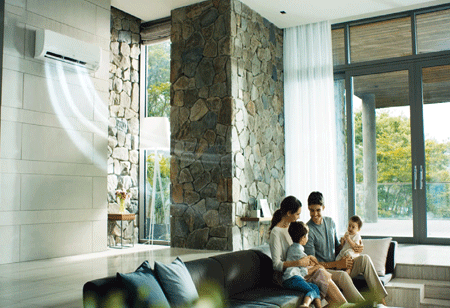
Inverter Technology


Sanjay Chitkara, VP - Sales Innovation, LG Electronics India, 0
India is the world’s fourth largest energy consumer and will likely overtake China in the next decade as the primary source of growth in global energy demand. Our country is the world’s third-largest carbon dioxide emitter, and India’s climate and environmental challenges have been acknowledged by many policy and industry leaders.
The ever-increasing demand for energy is major cause of concern for countries across the globe. A recent study from the Central Electricity Authority (CEA) suggests that the power consumption in the country will increase by 7.1 percent in the coming few years. Also, with the temperature rising every year, the power consumption will grow exponentially over the next few years.
The global energy demand in Home Appliance products is expected to rise by 2050, according to a recent report by International Energy Agency (IEA). The trend is more worrying in warm countries where the electricity requirement for AC, Ceiling Fans and others could reach up to 45 percent in 2050.
To proficiently reduce energy consumption without affecting the overall performance of appliances, it is crucial to understand and invest in energy efficient technologies i.e.the inverter technology. To understand the long-lasting impact of inverter technology, it is important to know how it works and the way it is different from the regular technology. Be it washing machines, refrigerators or air conditioners, motors and compressors are considered the heart of these appliances. In a regular air conditioner, the compressor is either on or off, when on, it works to the maximum capacity and consumes electricity till the thermostat reaches the temperature level set. And when the thermostat senses that the temperature has increased, the compressor starts again. Similar is the case with refrigerators. It has a device called ‘Thermocouple’ which senses the temperature inside the refrigerator and makes the compressor go‘on’or‘off’as per the temperature set in the refrigerator.
Essentially, inverter technology controls the energy and power consumption as per the requirement. The inverters change the power provided to a compressor and motor through voltage and frequency to switch their speeds at any time. To simplify it further, this works like an accelerator in a bike. When the motor needs power, it gives more and when less power, it delivers less. It is important to note that with this technology, the compressor is always on but will only draw lesser power when the set temperature is achieved. This enables power output control which in turn consumes lesser energy and reduces wastage.
Inverter technology is an eco-friendly innovative technology that is designed for a better and smarter living. Since the compressor is always on the start/stop cycle is eliminated thus increasing the efficiency. Quicker cooling or heating can be attained for a desired temperature as there are no fluctuations. Since the cooling or heating is done at a sustained level and there are no voltage peaks, the life of the component is also extended.
While the advantages of inverter technology are immense, as responsible consumers, it is important to adapt the new means of innovation. As this is a future-oriented technology, it is all about increasing the efficiency and reducing the power consumption which requires some standard procedures create a sustainable environment.
We at LG are putting continuous efforts to offer best of our products that are performance-oriented and topnotch. In 2017, we were the first brand to shift entire line-up of ACs to inverter range, as we wanted to offer most energy efficient solutions to consumers. This move certainly inspired the industry and today inverter AC constitutes 60 percent of total AC industry.
To conclude I would like to mention that Inverter technology ensures energy conservation & manufacturers should introduce more products & technologies which are energy efficient. There should be more awareness drives for consumers to use energy efficient appliances.
To proficiently reduce energy consumption without affecting the overall performance of appliances, it is crucial to understand and invest in energy efficient technologies
Inverter technology is an eco-friendly innovative technology that is designed for a better and smarter living. Since the compressor is always on the start/stop cycle is eliminated thus increasing the efficiency. Quicker cooling or heating can be attained for a desired temperature as there are no fluctuations. Since the cooling or heating is done at a sustained level and there are no voltage peaks, the life of the component is also extended.
While the advantages of inverter technology are immense, as responsible consumers, it is important to adapt the new means of innovation. As this is a future-oriented technology, it is all about increasing the efficiency and reducing the power consumption which requires some standard procedures create a sustainable environment.
We at LG are putting continuous efforts to offer best of our products that are performance-oriented and topnotch. In 2017, we were the first brand to shift entire line-up of ACs to inverter range, as we wanted to offer most energy efficient solutions to consumers. This move certainly inspired the industry and today inverter AC constitutes 60 percent of total AC industry.
To conclude I would like to mention that Inverter technology ensures energy conservation & manufacturers should introduce more products & technologies which are energy efficient. There should be more awareness drives for consumers to use energy efficient appliances.